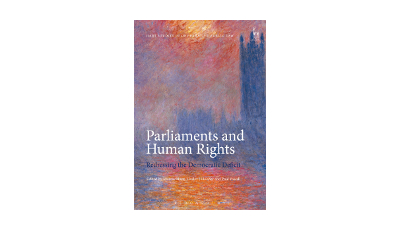2015 Book on Parliaments and Human Rights: Redressing the Democratic Deficit

Murray Hunt, Hayley Hooper and Paul Yowell published an edited collection of essays in March 2015 entitled Parliaments and Human Rights: Redressing the Democratic Deficit (click for link to publisher). The book is largely based on papers presented for the first time at the conference in April 2012 and subsequently revised for publication. It carries a Foreword by the Speaker of the House of Commons.
The abstract of the book is as follows:
"In many countries today there is a growing and genuinely held concern that the institutional arrangements for the protection of human rights suffer from a 'democratic deficit'. Yet at the same time there appears to be a new consensus that human rights require legal protection and that all branches of the state have a shared responsibility for upholding and realising those legally protected rights. This volume of essays tries to understand this paradox by considering how parliaments have sought to discharge their responsibility to protect human rights. Contributors seek to take stock of the extent to which national and sub-national parliaments have developed legislative review for human rights compatibility and the effect of international initiatives to increase the role of parliaments in relation to human rights. They also consider the relationship between legislative review and judicial review for human rights compatibility, and whether courts could do more to incentivise better democratic deliberation about human rights. Enhancing the role of parliaments in the protection and realisation of human rights emerges as an idea whose time has come, but the volume makes clear that there is a great deal more to do in all parliaments to develop the institutional structures, processes and mechanisms necessary to put human rights at the centre of their function of making law and holding the government to account. The sense of democratic deficit is unlikely to dissipate unless parliaments empower themselves by exercising the considerable powers and responsibilities they already have to interpret and apply human rights law, and courts in turn pay closer attention to that reasoned consideration."
A table of content for the book can be found here.

